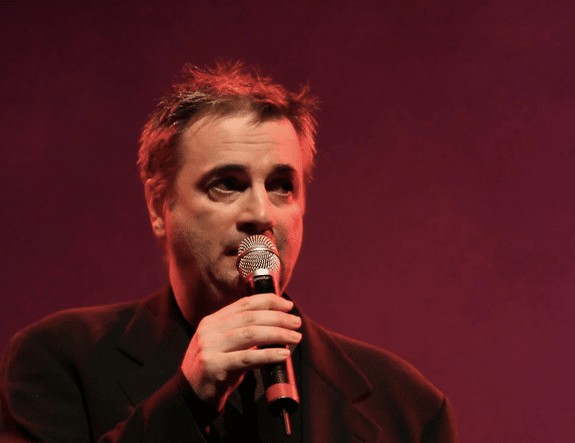
Two decades after the internet began allowing people to publish to the masses and connect with each other, second-generation pundits have settled in to a dumb “social media are awesome” dogma that now appears stagnant.
So overwhelming is this wall of hyperbole, espoused by the likes of Mashable and adhered to by thousands of junior marketing executives trying to turn their Twitter hobby in to corporate brownie points, that any attempts to move to a more refined assessment of media and technology is often relegated as Luddism. You’re either all-for or you’re old news.
Or, at least, that’s how cultural critic Paul Morley felt whilst discussing matters in a seminar panel about Marshall McLuhan at Bristol’s Watershed on Thursday.
Morley, a former NME writer and BBC Review Show contributor, is not a cynic. He said: “The (current) revolution is much more important than the punk one.” But he criticised “complacency about progress”. Discussing McLuhan’s legacy with artists and academics who are now online converts, however, he felt he was “in a room with a bunch of strangers who have suddenly branded me as Simon Cowell’s cousin”.
That was a shame. Morley, a healthy sceptic, had attempted to distill a more considered assessment of the times, as though channelling McLuhan himself, who was a careful observer of media trends and effects rather than an all-out digital champion. Here are some Morleyisms.
“There’s too much jollity, too much obedience; it’s more important to be wary. I’m missing a transcendent series of voices to comment on a transcendent series of circumstances.”
“Most people are using new media for something that would have looked quaint in the 1950s. People are so anxious that the world they are inhabiting is disappearing that they are using technology merely to gossip and to be entertained.”
“Menial swapping of banal aspects of everyday life … The ultimate confirmation of some dire prediction that’s been going on for centuries – that totalitarian regimes will be based around pleasure, not necessarily around stripping of pleasure.”
“I always worry about co-production (in art) – I don’t think Bob Dylan would have given us what he did if it was co-created.”
“(Hearing executives like Mark Zuckerberg) is like being in the presence of half-Ghandi, half-Stalin. They have no sense of moral framework. They don’t care as long as they’re giving you the tools and you use them.”
“The news broadcasters jumped too quickly on (‘social media’) and fell for a gimmick … (it is) infanting.
“In the 60s and 70s, it used to be talk radio. When people get very close to each other, they get very savage. The liberation achieved initially seems to have very nasty fundamentalist people who get a voice in the most mainstream of areas.
“The hierarchical gatekeepers have been removed and a slightly more worrying set have been put back in.”
“The people who really write The Guardian newspaper now are not the person whose name is at the top but the dozens below. The mission of The Guardian newspaper now is mutualisation, to accept that these people are more important than them. The Guardian are now merely the hosts at some grotesque dinner party waiting for these guys to come in and flail them.
“They’ve fallen for the wrong thing. They’re not trying to generate a new way of doing things in the 21st Century. They’re falling for the gimmicky side.”
But, unlike McLuhan, who gained quite a cult following in the 1960s, Morley felt his views left him intellectually isolated in today’s digital crowd, acknowledging the aphorism: “If you try and complain about the times you live in, then your time is up. It may be that my time is up.”